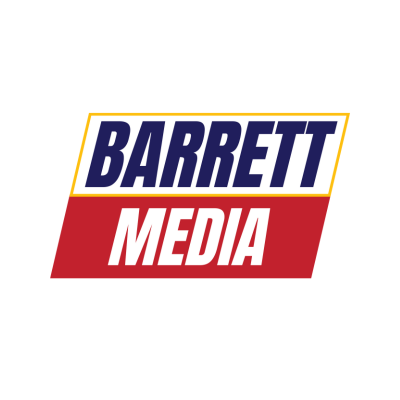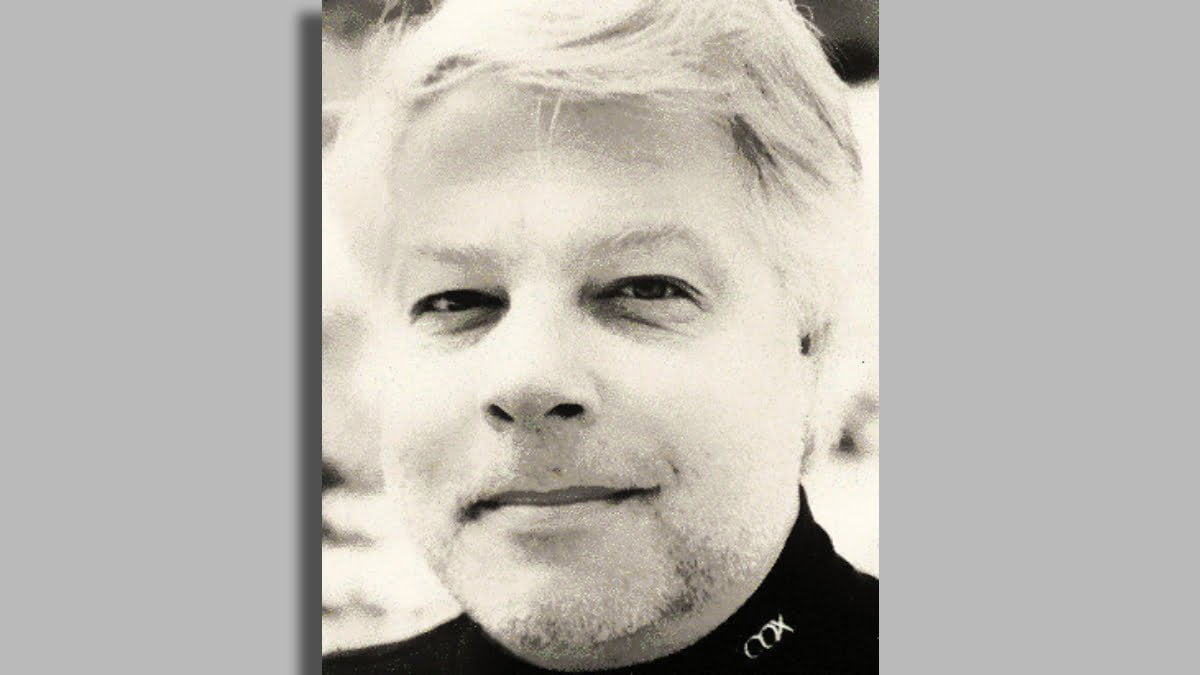Greg Moceri has played a prominent role in the talk radio industry as a consultant and program director for many decades. He began his career at WOOD Radio in Grand Rapids, Michigan, and later achieved great success at WTIC in Hartford. He then became the Program Director and format Coordinator at WSB in Atlanta.
Throughout his career, Moceri has worked with a diverse range of clients, including Entercom, Bonneville, Salem Media, Tribune, and iHeart, helping them achieve unprecedented success. Additionally, he has played a crucial part in the success of multiple syndicated talk shows.
Upon taking over WSB in 1993, the station was ranked 12th and struggling. Undeterred, Moceri led WSB to great success with his visionary ideas and innovative tactics. From 1995 to 2000, he propelled the station to the top spot among the coveted 25-54 demographic.
During a sit-down with Barrett News Media, Moceri spoke about Rush Limbaugh’s influential legacy and its impact on the industry. He also shared insightful tips on bringing out the best in radio personalities and his expectations for the upcoming Barrett News Media Summit in Nashville, Tennessee.
Ryan Hedrick: As a news/talk radio consultant, what do you think are the most significant challenges and opportunities facing the industry today?
Greg Moceri: It’s the state of the business on the revenue side. The revenue side is not my bailiwick, but you must know the challenges. So much of radio has been cut into by other mediums. However, I would much rather be in the spoken word format on the radio than the music side by a mile. There are still plenty of opportunities in the spoken word for revenue. It’s still an incredibly viable format, and I’m excited for the future.
RH: Could you provide some information about changes in news/talk programming over the years and any current trends you have observed?
GM: That’s a tricky question because a lot remains the same. The format itself, news/talk, leans conservative. It’s an excellent vehicle for people who want to relate to what’s going on in their community and their world. If you have a special connection to a host or a personality, that’s nirvana for someone running a news/talk station.
There are some incredible opportunities. Syndication has grown over the years, and so has the number of syndicated talents. There are ways in which you can make syndicated talent part of your radio station and not consider that they’re piped in somewhere and not there. With the need for more familiarity with younger listeners, recruiting those people is getting more complicated and complex, and that’s the number one problem I see.
RH: What do you think about the people who replaced Rush Limbaugh after his passing, and what made Rush Limbaugh stand out so much?
GM: That is subjective to everyone’s point of view. Nobody could replace Rush; I don’t care who it is. Rush had that incredible ability and talent to be able to contextualize. He did everything I always thought a talk host should do to become an indelible part of your life. Some good people are coming up. Rush was fabulous at pointing out the absurd, a crucial ingredient to connection and engagement.
There’s not a lot that’s different to being a talk show host than there was 20 years ago. You must still be entertaining, use great audio, emotionally connect with your audience, and be innovative. Rush could put things into a context you could understand; that was his greatest talent to me.
RH: How can we effectively engage and entertain listeners in today’s environment when so many different platforms and options are vying for their attention?
GM: I’m a big believer in focusing on the basics. If you’re a program director of these stations, an executive producer, or a host, you must be as local as possible to your community. I know for many companies, that’s part of the challenge. The main challenge is whether you have a budget to be local rather than local for local sake. There are some incredible syndicated hosts out there that present a good show. I would choose those hosts over somebody that is local but isn’t that good.
It’s essential; you have to be local as much as possible. When I was running WSB in Atlanta and working for Cox Media for so many years, we invested in research. That’s what’s missing. I wish people had the budget to invest in focus groups. Many stations still have it, but it’s different from how it used to be.
RH: With the growing popularity of podcasts and on-demand audio content, how can traditional news/talk radio stations adapt to remain relevant and attract new listeners?
GM: It’s another vehicle to the spoken word in a different format. In the end, podcasting has provided talented people with an actual broadcast. Podcasts are more personal than they are as a radio station. It’s just another one of the arsenals that’s available in the spoken word. It’s growing, it’s excellent, and it’s also starting to get tethered out. In other words, the good podcasters will stay, and those who aren’t so good will not.
RH: Could you give examples of successful and innovative programming approaches in the news/talk radio industry?
GM: You have a single host, two people, or an ensemble. You have to fill 38 minutes in an hour, you’re selling time, and many things are the same as they were. Now you have social media. There’s more opportunity as a potential arsenal of information you could pass along and connect to your audience. There has not been a lot of innovation. One great thing is more and more stations have been able to find an FM signal to go to and enhance their ability to reach more people. There are still some AM stations that are doing well.
We need innovation from the sales side. We have a lot of good content people, a lot of great programmers. There’s still too much focus on national sales instead of building regional sales because it puts people in a box. You and I know that the people with the money are 55-plus. Who cares whether they’re 35 or 40? There’s a stigma involved that thinking anyone over 55 is not as worthy as the national folks believe.
RH: What will happen to news/talk radio as technology advances? Are there any exciting technologies or trends that you are looking forward to?
GM: I am intrigued to see if AI will enhance or eliminate portions of radio. That’s the experimentation people will end up doing. We must continue to find great talent to emerge to be part of our business. I find that exciting. I would like to tell you that finding ways to enhance your emotional connection with your hosts to build across social platforms is essential.
RH: When you hear someone like Bob Pittman, the CEO of iHeartMedia, state that they won’t be shutting down broadcast stations, what are your thoughts on that?
GM: Radio is still a viable business, I read the article you’re referring to, and Pittman said, ‘Radio has never been in a better place.’ That statement could be arguable, but it’s great to hear that kind of endorsement from someone influential in our business for so long.
RH: You will speak at the first annual Barrett News Media Summit in September. Please provide insights on what distinguishes this event from other industry conferences or gatherings.
GM: So many conferences, seminars, and things like that, try to put too much into them. For instance, they may have a panel with six people on it and only 30 minutes to talk. I don’t think that’s the way [Jason] Barrett is looking at doing this. I think people really want to have some time to engage. You guys have put together some really good people. The more time you can spend with quality people, the better it will be.
RH: How do you coach and train radio hosts to improve their performance and build a stronger connection with their audience?
GM: This is something that I am passionate about. I got into the business, evolved, and entered a bigger market. I worked at WTIC in Hartford and went to WSB in Atlanta, and then I wanted to come home with my family in Grand Rapids. What was interesting to me in that process was that I learned a lot about how to coach. It’s not about coddling or making excuses for bad performances.
Some people have said, and rightfully so, that some program directors are too critical of the people they’re supposed to help and coach. There are fundamentals that good programmers know inherently. The key to me is that you must have great relationships with your talent to build a better station. How do you do that? To me, it’s much more about emotional connectivity. Talent always does best with praise if it’s sincere and they don’t think you’re playing them.
RH: Do you think radio executives will start prioritizing influencers and individuals with large social media followings over traditional radio professionals who have gained experience in the field?
GM: It’s an opportunity for people in radio to hire people in that fashion. Some of the best talents I’ve ever known, coached, or worked with didn’t come up traditionally. Erick Erickson is a guy who I worked with at Cox Media. He didn’t have the traditional deep pipes, but he gave me context. He checked the boxes; he made me think. The influencers to me are the talent. Talent influences how much money we make and whether the station is doing well. Influencers on Tik Tok adapt to what they know well. Some of those people will be in traditional media as they get older.










